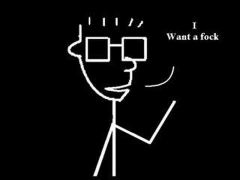- Barajar
ActivarDesactivar
- Alphabetizar
ActivarDesactivar
- Frente Primero
ActivarDesactivar
- Ambos lados
ActivarDesactivar
- Leer
ActivarDesactivar
Leyendo...
Cómo estudiar sus tarjetas
Teclas de Derecha/Izquierda: Navegar entre tarjetas.tecla derechatecla izquierda
Teclas Arriba/Abajo: Colvea la carta entre frente y dorso.tecla abajotecla arriba
Tecla H: Muestra pista (3er lado).tecla h
Tecla N: Lea el texto en voz.tecla n
![]()
Boton play
![]()
Boton play
![]()
5 Cartas en este set
- Frente
- Atrás
|
Criticism
|
Name used to describe Immanuel Kant's philosophy.
Knowledge has limits: human faculties. The knowledge that we can obtain requires the combination of reason and experience. |
|
Immanuel Kant
|
He tried to answer the question: what can we know about the world?
Both rationalists and empiricists were right about something, but also mistaken in some other matters. Knowledge starts with our senses. But it is reason (through the categories) the one that brings order to the sensorial information. Categories are rational operations that we use to put order to the information captured by the senses (ex. time and space). Phenomena: the things as they appear before us according to the categories of perception. Noumena: things as they are on themselves, beyond the limits of perception and human knowledge. |
|
Analytic Philosophy
|
Is born in the 20th century (the analysis of propositions).
One of its branches is the language philosophy (language analysis to determine its precision). It affirms that knowledge is acquired through the language. Epic Paradox: •"What I am saying right know is false". •Socrates says "what Plato says is false". And Plato affirms "what Socrates says is true". •Pinocchio saying "My nose will grow now!" |
|
Ludwig Wittgenstein
|

Austrian thinker who influenced every philosopher until today. His philosophy is divided in two stages: logic philosophy and language games.
•1st Stage: thoughts are logic representation of facts. Language reflects thoughts. Therefore, language shows us the world. A proposition that can't be proved, should not be said. •2nd Stage: rejects the previous stage, for one same word can have different meanings according to the context in which it's used. There are many languages and they evolve. Wittgenstein called them language games. What really matters is not the language-fact relation, but its use. In order to know a proposition you must verify to which language game they belong. |
|
Karl Popper
|
He is considered to be a critic rationalist, that is, reason gets a confidence vote, as long as we can verify its content empirically.
He was a Neokantian! Scientific knowledge is true knowledge but fallible, not certain. Critic Method: scientific knowledge is always hypothetical, consists in search and eliminate mistakes in order to reach the truth. Science shouldn't be based on faith but in reason. Principle of falsifiability: for a theory to be label as scientific, it must be able to be falsifiable. This means that the scientist can contrast in with reality in order to refute it. Scientific theories could never be definitive. There's always the possibility of finding new facts by reformulating a theory or creating a new one. |